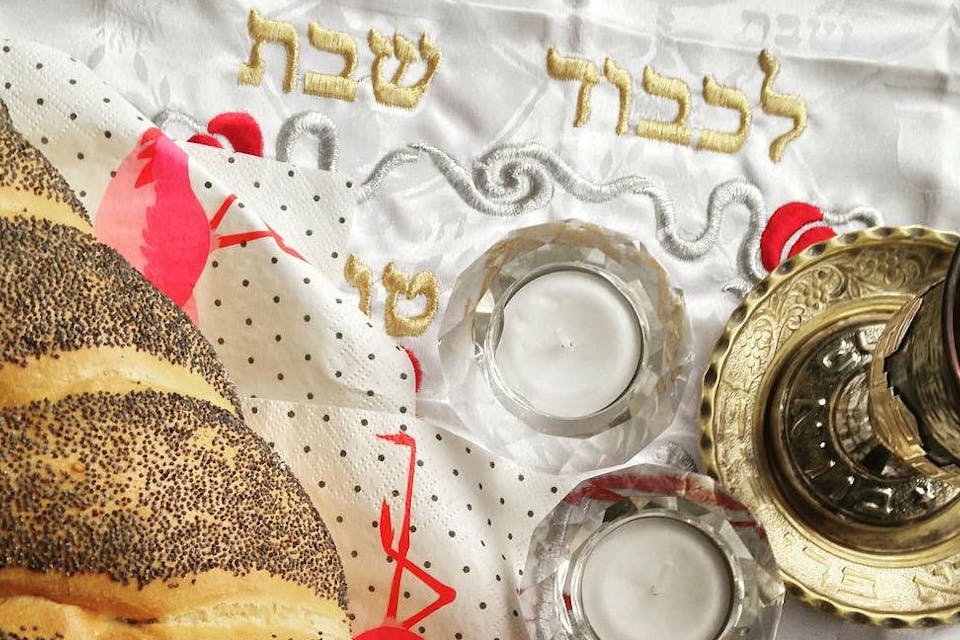
September 7, 2017
Why Some Rabbis Have Loved the Sabbath Prayer “Shalom Aleykhem”—and Some Haven’t
The promise and peril of calling angels to bless your Sabbath table.
Flip through any siddur and you will find a section dedicated to prayers whose place is not in the synagogue. These include the liturgy not just for weddings, funerals, and other solemn occasions but also for the domestic rituals of the Sabbath, and especially of the Shabbat table, which set the day’s meals apart from those of the rest of the week.
One of these rituals is “Shalom Aleykhem,” sung Friday night on return from the synagogue. It appears in prayer books dating as far back as 1641, and was most likely composed by an anonymous mystic living in Safed. A formal invocation of a familial space of peace and tranquility, the poem is followed by a lyric tribute from the book of Proverbs to the woman of the house, who will be identified with the Sabbath, and then the kiddush, which describes the Sabbath as the very meaning of the creation of the world. But the before-dinner ritual starts with “Shalom Aleykhem,” a song that invokes angels to accompany us with peace:
Peace be upon you ministering angels, angels from above,
From the King, who rules over the mightiest kings—the Holy One blessed be He.Come you in peace, angels of peace, angels from above,
From the King who rules over the mightiest kings—the Holy One blessed be He.Bless me with peace, angels of peace, angels from above,
From the King who rules over the mightiest kings—the Holy One blessed be He.Go you in peace, angels of peace, angels from above,
From the King who rules over the mightiest kings—the Holy One blessed be He.